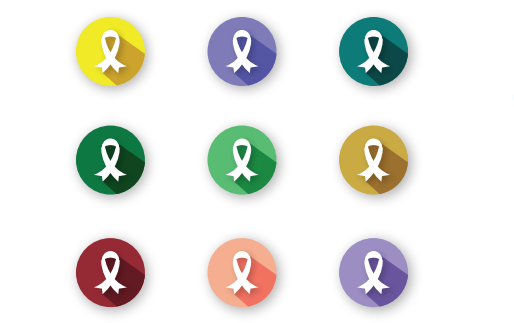
Hereditary Cancer Screening Test
Screening for inherited cancer
Genetic Testing Services Joint Stock Company (GENTIS) was officially established in 2010. Over the past 10 years, GENTIS has analyzed more than 200,000 samples, accompanied by many experts, doctors and scientists in the field. the diagnosis, treatment and screening of many diseases in many fields such as: Obstetrics and Gynecology; Hematology; Immunity; Heart; Gene decoding... GENTIS is the official partner of more than 100 major hospitals across the country such as: Bach Mai, Central Obstetrics and Gynecology, Hung Vuong, Hanoi Obstetrics and Gynecology, Tam Anh, Hong Ngoc....
With the mission of "Improving physical and mental health and Vietnamese people" after many years of research and development, GENTIS introduces to our valued experts, doctors and customers genetic inherited cancer screening.

RATIONALE
Inherited cancer is a genetic abnormality in a person caused by mutations in one or more genes that lead to an increased risk of developing cancer in the future. The mutations that cause this syndrome are passed down in families through generations.
Screening for inherited cancer
Genetic testing aims to detect disease-causing mutations in genes associated with colorectal cancer. The technology used for the initial test is next-generation sequencing (NGS) on 94 genes and 284 point mutations that have been identified as strongly associated with several forms of cancer. If a disease-causing mutation is detected, the patient's relatives can be tested for this mutation by Sanger sequencing.
Significance
- Determine the cause of the acquired form of cancer. Indicates whether the person being tested has some form of UTI.
- Finding pathogenic mutations allows us to conduct screening for pathogenic mutations on relatives. If the correct mutation is detected, the relatives also carry the gene but yet to develop the disease. If the disease-causing mutation is not detected, the relatives do not have this syndrome and do not have a higher-than-normal risk of cancer.
- For patients who are initially tested as well as their relatives who have a colorectal cancer mutation but have not yet developed the disease, the test results will allow the establishment of a strict health monitoring regime, measures to prevent or slow down the progress.
- Allows precise treatment orientation in some cases.
Indication
| - Many people in the family have the same type of cancer, especially a rare cancer. Cancer appears at a younger age than usual. - A person with multiple types of cancer at the same time | - Cancer occurs on both sides of a pair of organs (breast, eye, kidney, ...). - Have ≥ 2 young children who are siblings with cancer. - Male breast cancer. Cancer occurs in many generations in the family. |
Results of screening
Disease-causing mutations found
The diagnosis confirmed the suspected type of cancer. This information allows screening for mutations found in the patient's next of kin.
No pathogenic mutations were found
The diagnosis did not confirm the suspected cancer. This does not rule out the possibility of carrying the syndrome.
The reason may be because the mutation is present in genes outside the test gene spectrum, or outside the region of the gene being solved. Although there is no indication for relatives in this case, relatives still need to be periodically monitored for their health. Patients should be treated based on clinical presentation.
Found a “variant of unknown meaning”
The pathogenic role of the mutation found is unknown. Do not assign screening to relatives. Patients should be treated based on clinical presentation. Relatives need periodic health monitoring. In the following two cases, with the current level of development of science, no conclusions can be drawn. However, future studies may allow the conversion of “variant of unknown significance” to “pathogenic” or “benign”; or discover new pathogenic genes to account for negative results.

Please fill in the information below to receive our supports and consultations!







